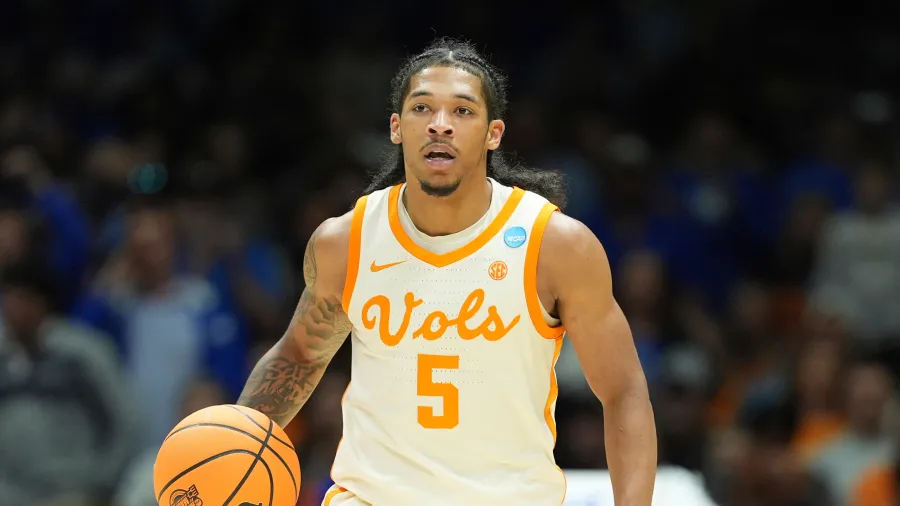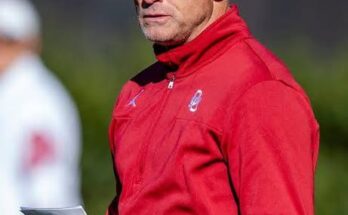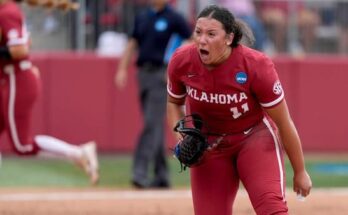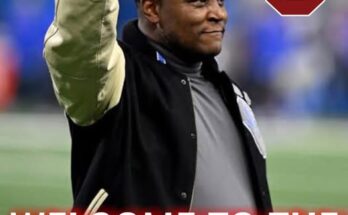Vols Zeigler, SEC’s 2-time Defensive Player of the Year, Sues NCAA to Play Fifth Season in Five Years
In the world of college athletics, few stories are as captivating as those of individuals who defy expectations, overcome adversity, and leave an indelible mark on their sport. One such player, Zakai Zeigler, a defensive powerhouse for the University of Tennessee Volunteers (Vols), has not only established himself as one of the top talents in the Southeastern Conference (SEC) but has now found himself in the midst of a legal battle that could have significant implications for his career and for the larger landscape of college sports. The lawsuit filed by Zeigler against the NCAA to secure eligibility for a fifth season of college basketball is not just about one player’s pursuit of an extended athletic career—it’s a case that calls into question the future of the NCAA’s rules regarding player eligibility and the evolving dynamics of college athletics in the era of the transfer portal, NIL (name, image, and likeness), and ever-changing regulations.
Zakai Zeigler’s rise to prominence in college basketball is a story of grit, determination, and an unyielding commitment to his craft. From the moment he stepped onto the court as a freshman for the Tennessee Vols, it was clear that he was a player with exceptional defensive ability and a natural basketball IQ. Zeigler quickly gained recognition as one of the top defenders in the country, a reputation that would culminate in back-to-back SEC Defensive Player of the Year honors—an incredible feat for a player still in his early 20s. His tenacity on defense, ability to disrupt opposing offenses, and leadership on the floor made him a standout in the SEC, one of the most competitive conferences in college basketball. However, his story has taken an unexpected turn in recent months as he seeks to continue playing at the college level for one more season.
The issue at hand is Zeigler’s desire to play a fifth season of college basketball in 2025, a request that runs afoul of the NCAA’s eligibility rules. Under typical circumstances, college basketball players are allowed to play for four years, with the possibility of a redshirt year if they are injured or do not participate in enough games to preserve a season of eligibility. The NCAA, however, has made exceptions to this rule in light of the COVID-19 pandemic. In 2020, the NCAA introduced a temporary rule that allowed players to maintain eligibility for an additional year, effectively providing an extra season for players whose careers were disrupted by the pandemic. This move was hailed as a necessary response to the unprecedented challenges posed by the global health crisis and was intended to ensure that student-athletes would not be penalized for circumstances beyond their control.
For Zeigler, this rule change presented a potential opportunity to extend his playing career by an additional season. However, as the years passed, the NCAA’s stance on player eligibility began to shift. In Zeigler’s case, a serious knee injury he suffered during the 2024 season created the need for him to take a step back and reconsider his future. Despite his stellar play on the court in his first four years, including his repeated recognition as SEC Defensive Player of the Year, Zeigler was not able to fulfill all the expectations of his collegiate career due to this injury. Under the NCAA’s current rules, athletes are permitted to apply for an extra season if their eligibility is impacted by injuries, but those applications are subject to review by the NCAA and are not always granted. In Zeigler’s case, the NCAA ruled that his circumstances did not warrant the extension of eligibility, despite the fact that his injury had a significant impact on his ability to play.
Zeigler’s legal action comes after he exhausted all other options available within the NCAA’s appeals process. Frustrated by the lack of movement on his request and the NCAA’s unwillingness to grant him another season, Zeigler has decided to take matters into his own hands. His lawsuit argues that the NCAA’s current eligibility rules are unfair and unjust, particularly in the context of the unique challenges posed by the pandemic and the increasing prevalence of injuries in college athletics. According to Zeigler’s legal team, the NCAA’s decision to deny him eligibility for a fifth season is inconsistent with the rules that were applied to other players who were given extra seasons due to the pandemic. Furthermore, they contend that the NCAA’s application of its eligibility rules has become increasingly arbitrary, with no clear and consistent framework for determining who is eligible for an additional season and who is not.
The implications of Zeigler’s lawsuit are far-reaching. For one, it challenges the NCAA’s long-standing authority to govern college athletics and make decisions about player eligibility. If the court rules in Zeigler’s favor, it could set a precedent that allows other players to challenge the NCAA’s eligibility rules on similar grounds. This could open the floodgates for a wave of lawsuits from athletes seeking to extend their careers and secure additional seasons of eligibility. Such a move could potentially disrupt the NCAA’s carefully crafted system for determining eligibility and could force the organization to reconsider how it handles cases involving injured players, transfers, and other extenuating circumstances.
At the heart of the legal battle is the question of fairness. Many observers believe that the NCAA’s eligibility rules are outdated and fail to account for the realities of modern college sports. College basketball is an incredibly demanding sport, and players face intense pressure to perform at a high level while simultaneously managing the academic and personal demands of being a student-athlete. Injuries are an unfortunate but inevitable part of the game, and many athletes, like Zeigler, are forced to navigate these challenges as they try to balance their education with their athletic careers. For players like Zeigler, whose careers are derailed by injuries, the NCAA’s rigid eligibility rules can feel like an additional burden, preventing them from achieving their full potential both on the court and in their academic endeavors.
Beyond the legal and procedural issues, Zeigler’s lawsuit also touches on the larger issue of the shifting dynamics of college sports in the age of NIL and the transfer portal. The NCAA’s traditional model of amateurism has come under increasing scrutiny in recent years, as players have gained more leverage through NIL deals and the ability to transfer between schools without penalty. These changes have upended the old ways of doing business in college athletics and have forced the NCAA to adapt to a new reality. For many players, the opportunity to play an additional year of college basketball could be a crucial factor in their decision to stay in school, particularly if they are not yet ready to make the leap to professional basketball.
In this new era of college sports, players are increasingly empowered to take control of their own destinies, and Zeigler’s lawsuit is a reflection of this broader shift. It represents a challenge to the traditional power structures that have governed college athletics for decades and serves as a reminder that athletes are not just commodities to be managed by the NCAA—they are individuals with dreams, ambitions, and rights that should be respected. If the courts rule in favor of Zeigler, it could send a message to the NCAA and other governing bodies that the interests of student-athletes must be taken into account when making decisions that affect their careers and futures.
For Zeigler, the stakes could not be higher. A fifth season would give him the opportunity to continue his playing career, potentially improve his draft stock, and contribute to the Tennessee Volunteers’ pursuit of an SEC championship and a deep run in the NCAA Tournament. He has already established himself as one of the top defensive players in the country, and with a full recovery from his injury, he could further cement his legacy as one of the greats in Tennessee basketball history. For Zeigler, this legal battle is not just about one more year of eligibility—it’s about finishing what he started and achieving the goals that have motivated him throughout his career.
The outcome of this lawsuit will likely have lasting ramifications for the NCAA, its approach to eligibility, and the broader landscape of college sports. Whether or not Zeigler is granted his fifth season, his fight for fairness has ignited a larger conversation about the need for reform in the NCAA’s rules and the importance of protecting the rights of student-athletes. As the world of college sports continues to evolve, one thing is certain: the story of Zakai Zeigler and his pursuit of a fifth season in college basketball will be remembered as a pivotal moment in the ongoing debate over the future of amateur athletics.



